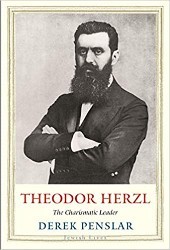Karaite Judaism emerged in the ninth century in the Islamic Middle East as an alternative to the rabbinic Judaism of the Jewish majority. Karaites reject the underlying assumption of rabbinic Judaism, namely, that Jewish practice is to be based on two divinely revealed Torahs, a written one, embodied in the Five Books of Moses, and an oral one, eventually written down in rabbinic literature. Karaites accept as authoritative only the Written Torah, as they understand it, and their form of Judaism therefore differs greatly from that of most Jews. Despite its permanent minority status, Karaism has been an integral part of the Jewish people continuously for twelve centuries. It has contributed greatly to Jewish cultural achievements, while providing a powerful intellectual challenge to the majority form of Judaism.
This book is the first to present a comprehensive overview of the entire story of Karaite Judaism: its unclear origins; a Golden Age of Karaism in the Land of Israel; migrations through the centuries; Karaites in the Holocaust; unique Jewish religious practices, beliefs, and philosophy; biblical exegesis and literary accomplishments; polemics and historiography; and the present-day revival of the Karaite community in the State of Israel.

Karaism: An Introduction to the Oldest Surviving Alternative Judaism
Discussion Questions
Examining a group that rejects the foundational premise of rabbinic Judaism — the Oral Torah— this book offers a valuable window into Jewish diversity. It provides an accessible account of Karaism from its origins to the present time, including history, scholarship, beliefs, and practices. The book is a treasure trove of information about a group that all Jews should better understand, but its significance does not stop there. By exploring the relationship between Karaites and other Jews in a variety of historical contexts (including those in which the threat of persecution led Karaites to abandon Jewish identity), this study of “the oldest surviving alternative Judaism” can also contribute to richer perspectives on other forms of Jewish diversity.

Help support the Jewish Book Council.



